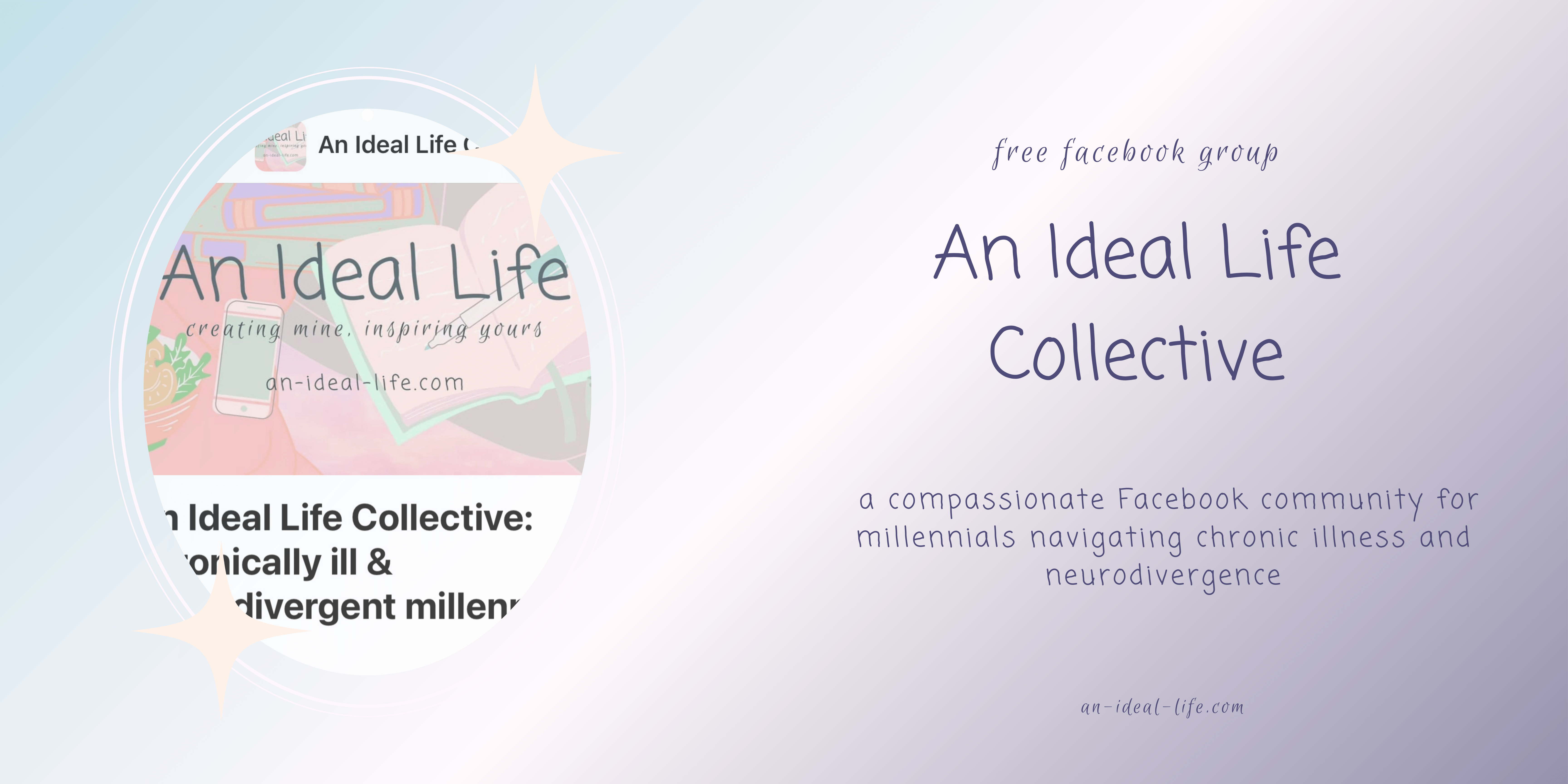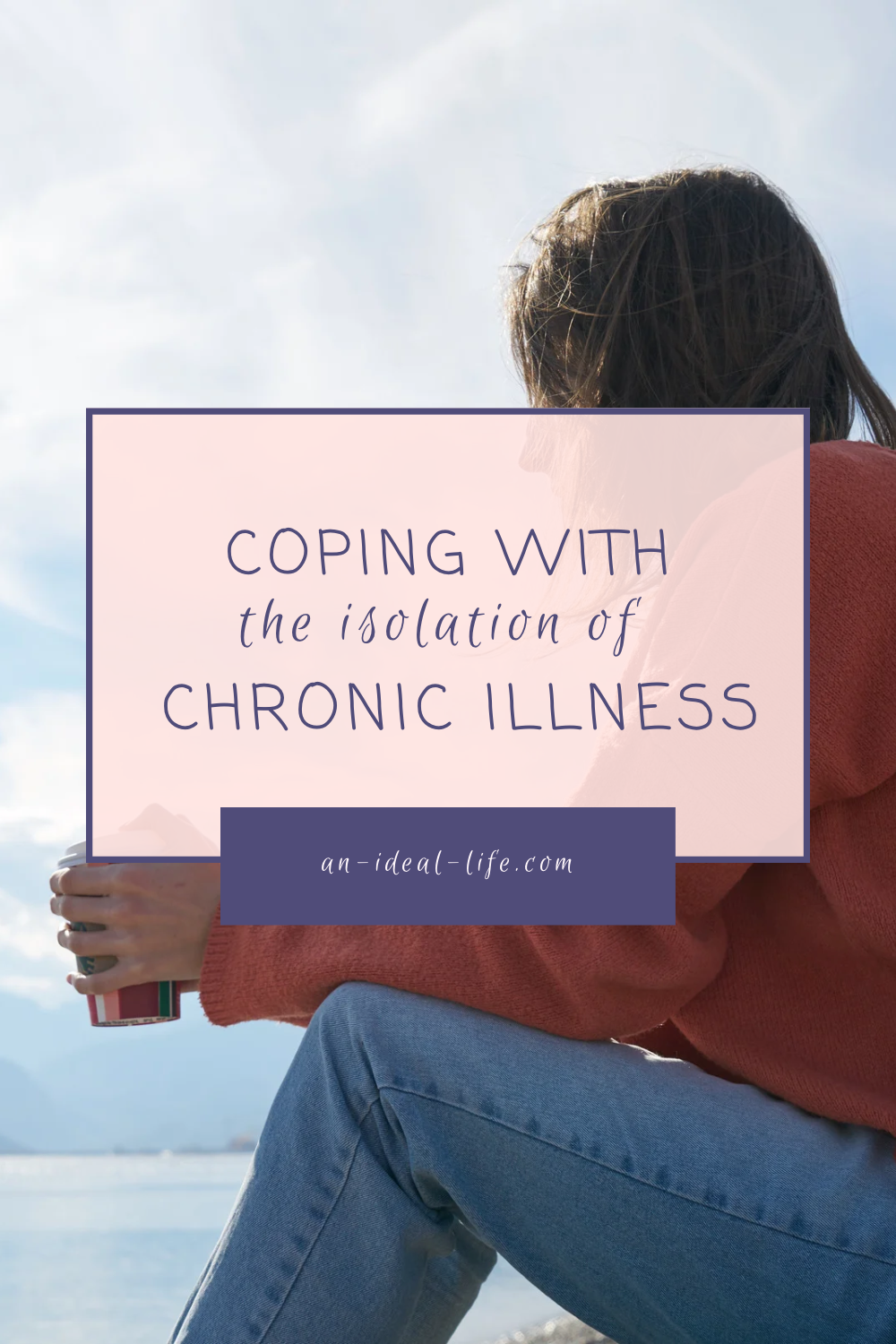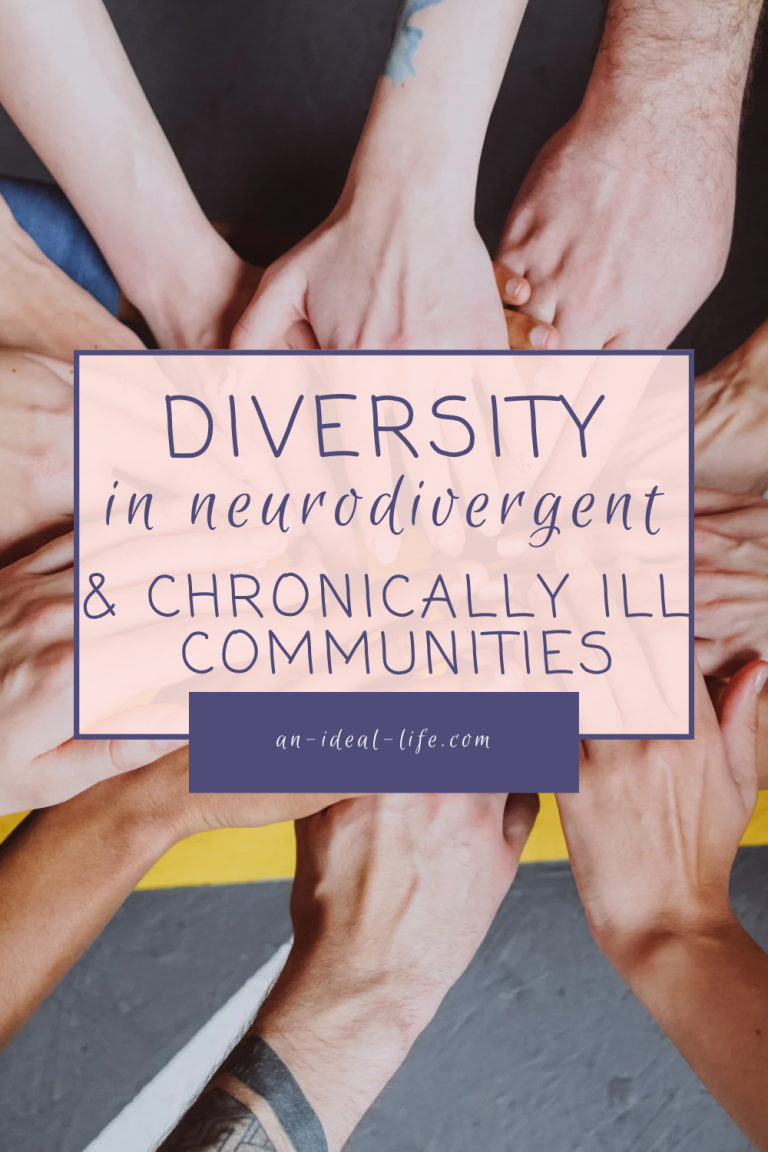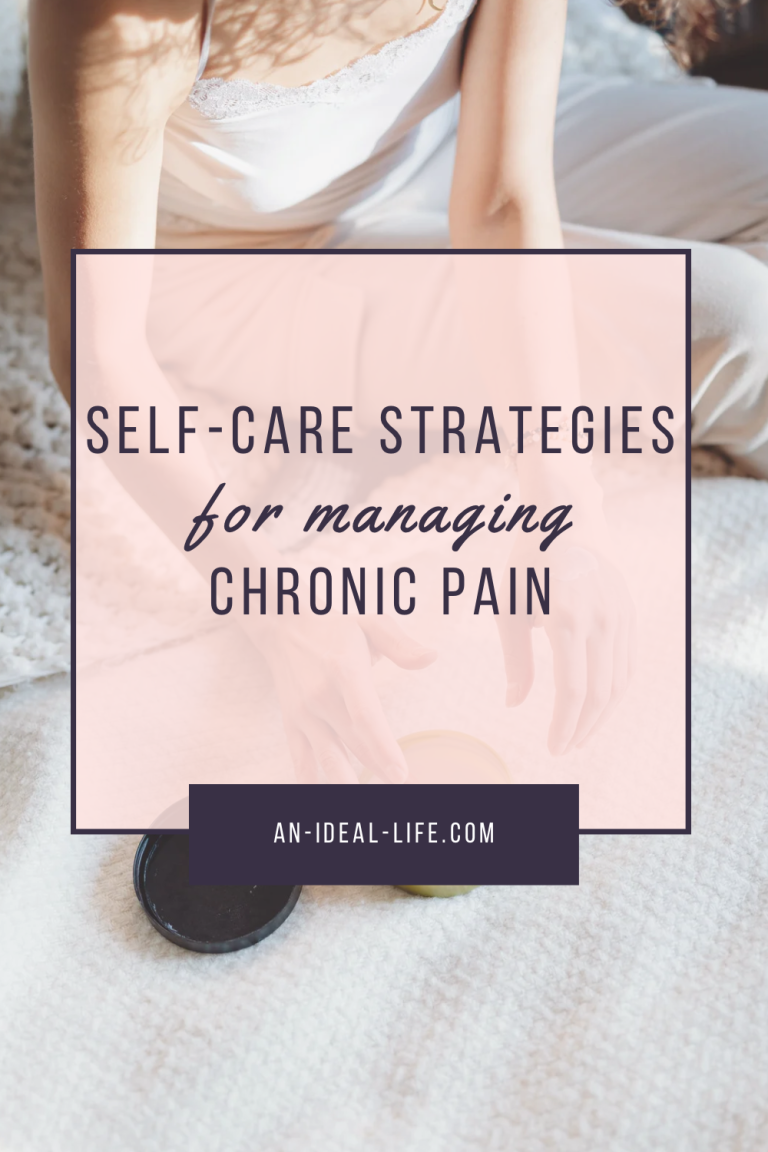Coping with the Isolation of Chronic Illness
Living with chronic illness often means dealing with isolation on a regular basis. When your body doesn’t allow you to keep up with friends or participate in typical social activities, it’s easy to start feeling alone and disconnected from the people and experiences that bring you joy. While isolation is a common struggle for those managing chronic health conditions, there are ways to cope and still foster meaningful connections in your life. There are a variety of causes behind the isolation of chronic illness, but there are also strategies to overcome it and resources to help you feel more supported on your health journey.
*This post may include affiliate or referral links. At no extra cost to you (and with a special reader discount, in some cases!), I’ll receive a small commission or other rewards to help support An Ideal Life. As an Amazon Associate, I earn from qualifying purchases*
The information in this blog post is provided for educational and informational purposes only and should not be construed as medical advice. The content is not intended to be a substitute for professional medical advice, diagnosis, or treatment. Always seek the advice of your physician or other qualified healthcare provider with any questions you may have regarding a medical condition. Never disregard professional medical advice or delay seeking it because of something you have read online. The author of this post is not a licensed medical professional and does not assume any liability for any actions taken based on the information contained in this post.
What Leads to the Isolation of Chronic Illness?
There are a number of factors that commonly lead to the increased isolation of chronic illness. Understanding what tends to drive these lonely feelings can help you identify ways to stay better connected.
Fatigue and Low Energy
Chronic illness often comes with debilitating fatigue, making it hard to socialize or be “on” around others. You may have to skip events or meet-ups to rest and recover your energy. This can quickly isolate you from social circles when your tank runs empty faster than others. Finding a balance between resting and pushing yourself to attend some gatherings is key, even if you only stay for a short time.
Mobility Challenges
Conditions like chronic pain, injuries, or neurological symptoms can make it extremely hard to leave the house or get around easily. Relying on others for rides or being homebound by your symptoms severely restricts your ability to physically see people. While it requires some creativity, you can still find ways to connect that work within your mobility limits. This may mean relocating gatherings to your home, doing video calls, or meeting up one-on-one with friends who can accommodate you.
Treatment Routines
The endless medical appointments, medication schedules, and time-intensive treatments that come with many chronic illnesses also take away from potential social time. Undergoing frequent treatments like chemotherapy or dialysis makes it hard to make firm plans too far in advance, as you never know how you’ll be feeling. Being upfront with friends about your packed medical routine helps them understand why your availability is limited. Finding support communities that get the time commitment involved can also help you feel less alone in juggling health and social life.
Canceled Plans and Unreliability
Going through flares of your symptoms often means having to cancel plans last minute, which can strain even close friendships over time. When you live with chronic illness, your health is unpredictable. The isolation comes from loved ones no longer being able to depend on you to follow through consistently. Being open about your symptoms and any limits you’re experiencing helps take the pressure off. Focus on low-key hangouts with patient friends who are genuinely happy to see you when you can make it.
Loss of Incidental Connections
Having to leave jobs or school due to health issues also means losing those casual social connections that happen in those settings. Coworkers, classmates, regular customers—those relationships build naturally when you intersect daily. When your health forces you onto a different path, it can be jarring and lonely not having those incidental people in your life. Consider joining a club, volunteering, or taking a class (virtually if need be) focused on your interests to find a new source of regular interactions.
Hidden Symptoms and Lack of Relatability
For those dealing with “invisible” symptoms like chronic pain, fatigue, brain fog, anxiety or depression, friends without these direct experiences don’t always understand the full impact on your life. When your days revolve around doctors, treatments, and trying to function through symptoms, healthy friends and peers may not inherently relate to what you’re going through. Being selective about who you spend time with and leaning on communities dealing with similar struggles helps. Taking time to explain your reality to loved ones also goes a long way.
All these factors have a cumulative effect that leaves you with the isolation of chronic illness at home, lacking the energy or mobility for much socialization outside your immediate household. Even keeping up digitally through texts or social media can feel draining or stressful during health flares. It quickly becomes an isolating cycle—but there are ways to improve your social life within your health limitations.
How to Overcome the Isolation of Chronic Illness
While the isolation of chronic illness may feel unavoidable, there are strategies to improve social connections:
Reach Out Anyway
Make brief phone or video calls with loved ones when you’re feeling up to it, even if just for 10 or 20 minutes of quality catch-up time. Shorter social spurts are far better than no interaction. Setting a recurring weekly call with a close friend helps ensure some regular social time.
Schedule Down Time
Plan some rest periods for before and after any social visits or events you attend to conserve your limited energy. Whether it’s a long nap before or relaxing with no plans the next day, intentional down time helps you recuperate. Protecting your energy means more opportunities to say yes down the road.
Invite Friends Over
Have friends come to you by inviting them over for a simple at-home meal, movie night, game night or other low-key hangout based on your interests and energy level. Being in your own space means you control the activity, length, and accommodations. It removes the stress of getting to an event.
Check out our picks for the best self-care films, perfect for a cozy movie night with friends!
Join Community Groups
Look for in-person or online communities, such as Facebook groups, MeetUps, or forums. Connecting with others going through the same struggles inherently provides built-in social support from people who just get it.

Prioritize True Friends
Be selective and focus your limited energy on nurturing friendships with those who truly make an effort to understand your chronic illness experience. They adjust plans to accommodate you, offer help, and don’t make you feel guilty when you can’t participate.
Educate Loved Ones
Take time to clearly explain to close friends and family what your invisible or internal symptoms feel like and what your limits are day to day. Helping them grasp how symptoms like fatigue, pain, brain fog or anxiety limit you encourages more empathy and support.
Suggest Lower-Key Alternatives
When you do have to decline social invitations, be proactive in suggesting lower-key alternatives you could still feel up for. This keeps the door open; “I can’t make the concert tonight but let’s get coffee on Thursday.”
Stay Digitally Engaged
Maintain friendships through texting, social media comments, video chatting or brief calls when you’re not up for face-to-face hangouts. Some digital connection with loved ones is still better than disappearing.
Embrace Comfort
Don’t pressure yourself to chat or entertain extensively during in-person visits, which can zap your energy. Give yourself permission to just relax and enjoy calm presence together.
Seek Out Peer Support
Find online or local in-person networks of people dealing with the same or similar health struggles. Peers inherently understand what you’re going through day to day. It provides community with built-in accommodation.
Set Health Boundaries
It’s perfectly okay to politely say no to invitations in order to maintain your energy, treatment schedule, and overall health needs. Protect your time and don’t compromise your self care.
Focus Outward When Able
When possible during periods of improved health, try to be the one reaching out to isolated friends also struggling with health or life challenges. Use your experience to offer them extra support and understanding.
External Support Resources
In addition to making social adaptations, it also helps immensely to find resources created specifically to help those with chronic illness overcome isolation. Some options to explore:
Online Health Forums
Connect with a sense of community by joining forums, private Facebook groups and the like focused on your specific health conditions or demographics. This could include groups for young adults with chronic illness, fibromyalgia, lupus, etc.
Peer Mentor Programs
Organizations like Australia’s Chronic Illness Alliance Peer Support Network will match you with a volunteer peer mentor who has lived experience with your same diagnosis. This provides built-in 1-on-1 support.
Condition-Specific Support Groups
Finding local in-person or virtual support groups centered around your illness provides a ready-made community of fellow patients who understand your experience.
Health Organization Offerings
Contact any clinics or organizations you’re affiliated with about possible support offerings like group classes, meetups or peer connection programs.
Counseling
Seeking help from a therapist skilled in chronic illness can provide strategies to boost your social confidence and skills in navigating isolation.

If you’re struggling with your mental health, consider utilizing Talkspace online therapy.
Meal Delivery Services
Having healthy meals delivered by a service like Hello Fresh takes the pressure off cooking and shopping alone, freeing up energy you can dedicate to social activities.
Home Health Aides
If it’s in your budget, consider hiring a home health aide a few hours a week to assist with cleaning, errands and tasks that might otherwise take time away from connecting with loved ones. You’ll also have the built-in company to help combat the isolation of chronic illness.
When chronic illness hinders your ability to socialize normally, adapting your approach and utilizing available resources can help significantly combat isolation. Small changes to how you connect with loved ones, combined with ongoing support from those who “get it,” means you can continue to foster meaningful relationships and community. While, to some degree, the isolation of chronic illness may always exist, know there are always options to improve your situation. Don’t lose hope or give up reaching out.
Seeking social support to help combat the isolation of chronic illness? Join the AIL Collective, our Facebook group for chronically ill and/or neurodivergent millennials!








